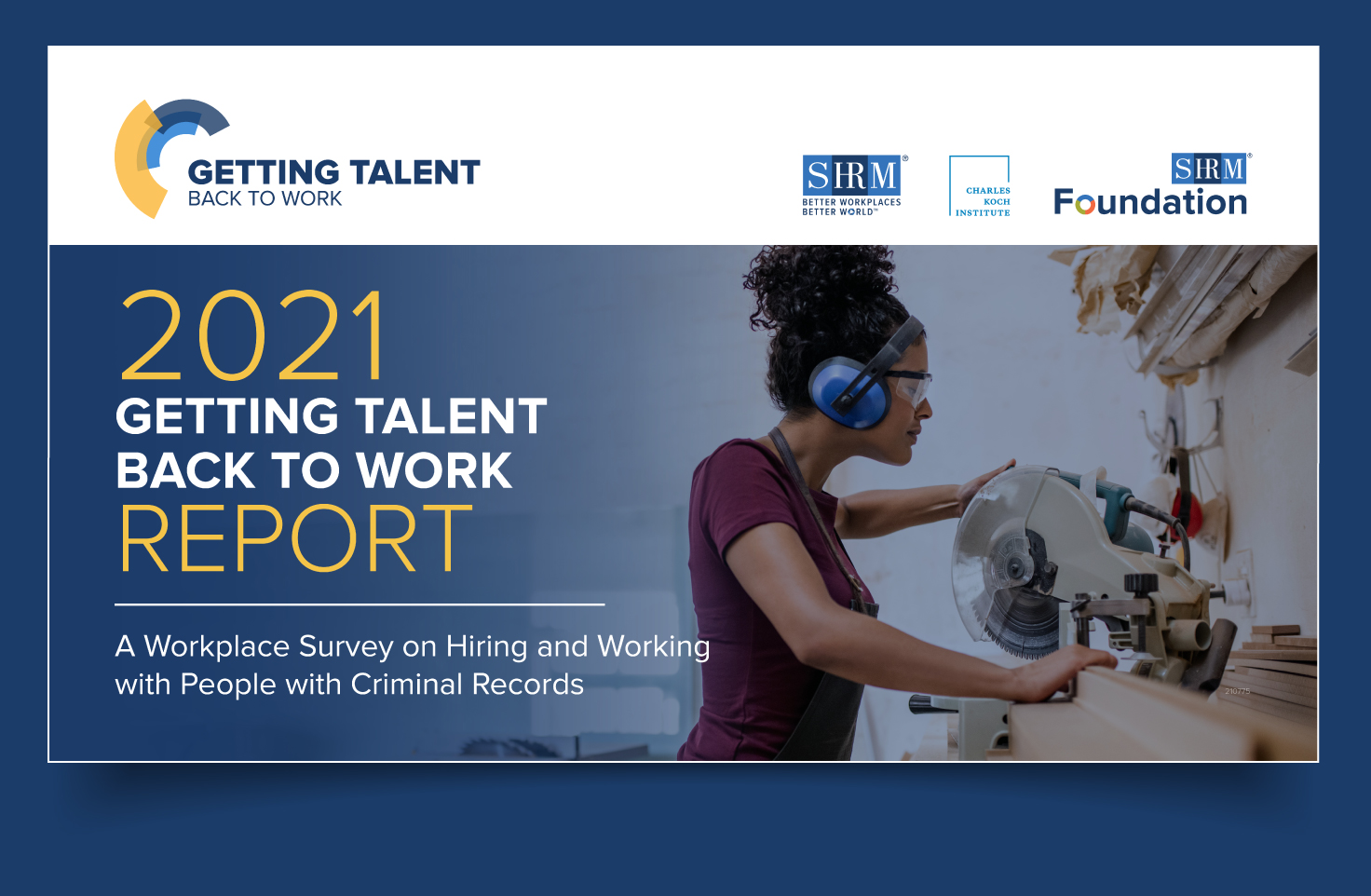People with criminal records—especially the formerly incarcerated—face enormous barriers to employment. Talented and eager to work, this untapped pool of workers can bring great value to employers and communities when given the opportunity to thrive and succeed in the workplace. But too often, they are denied the opportunity they need to put their skills to work due to deeply rooted biases and harmful misperceptions.
SHRM Foundation’s Getting Talent Back to Work initiative is leading the way to reduce barriers and build bridges to employment for people with criminal records, believing strongly in the power of HR in building diverse and inclusive workplaces that deliver value to people and business. In this hub, HR professionals and employers can find all the resources, tools, and case studies needed to attract, hire, and retain people with criminal records.
Hiring Justice-Impacted Individuals Is Good for Business
and Can Help Diversify Your Workforce
%
would be proud to work for an organization who offered training, guidance, or mentorship opportunities to people with criminal records to facilitate their return to work.
%
of Americans said they would feel comfortable patronizing a business that is known to give those with a criminal record a second chance – up from 75% in 2019
%
of HR Professionals report that individuals with criminal records have higher promotion eligibility than other hires

Employer Benefits
Organizations benefit in a variety of ways from employing people with criminal records.

Second Chance Barriers
Despite many employer benefits, significant barriers exist for people with criminal records.
The Data is Here, and it Speaks Volumes
It is estimated that nearly 1 in 3 working adults (more than 70 million people) have a criminal record. This means that a quarter of the population has been impacted by the justice system, making this one of the largest untapped workforces.
These talented individuals face enormous barriers to employment, and research from SHRM and the SHRM Foundation finds Americans want to see second chances offered. Could any of these individuals be a solution to your talent gap?
Take your first step toward learning how to reduce barriers for people with criminal records in your workplace.
Real People, Real Stories
SHRM President and CEO Johnny C. Taylor, Jr., SHRM-SCP explains why creating opportunities for people with criminal records isn’t just the right thing to do, it is good for business and society.
SHRM has been a leader in advocating for people with criminal records in the workplace. In his keynote remarks to the conference, SHRM President and CEO Johnny C. Taylor, Jr., thanked the D.C. chapter’s HR professionals for their work on the issue, adding that the cause is “near and dear to my heart.
Her remarkable story made headlines in the news—hear why Alice Marie Johnson, who was released from prison, supports giving those in similar positions opportunities for meaningful employment.
START MAKING A DIFFERENCE TODAY

Get The Research
- Workplace Survey on Hiring and Working with people with Criminal Records
- Second Chance Hiring from the Consumer Standpoint

Take the Assessment
Answer 10 multiple-choice questions in relation to working with job seekers with criminal records and receive a personalized report that will provide useful tools and resources to help you drive change in your workplace.

Earn Your Certificate
The free Getting Talent Back to Work Certificate is a multi-faceted program with the actionable knowledge and tools HR professionals, hiring managers, front-line supervisors and other HR professionals need to attract, hire, and retain people with criminal records.

Access the Toolkit
This toolkit provides no-cost, high-quality resources along each step of an employee’s journey to support employer’s efforts to recruit, welcome, and develop individuals with a criminal background.


